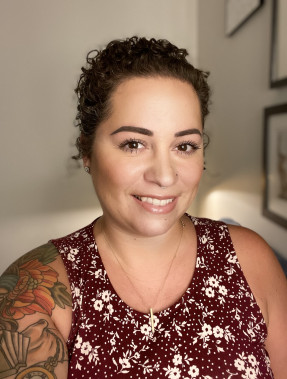Sherri Strickland was shocked to learn that hundreds of people in her small, rural town of Victoria, Texas, were homeless. “You see the panhandlers, of course,” says Strickland, CIPS, SRS, broker-owner of All Star Properties. “But other than that, the homeless hide. I had no idea there were so many.”
She and a few women from her local church got together to figure out a solution. They decided to visit Community First! Village, a master-planned neighborhood in Austin that provides a soft landing for people coming out of homelessness. The neighborhood includes tiny homes and shared spaces, such as a kitchen, greenspaces and laundry rooms, to encourage community-building.
When Strickland and her group returned home, they knew they could use Community First! Village as a model for their own efforts. “So, three of us—all in real estate—started the board for Promise Pointe, and we created a search committee to look for property,” Strickland says.
Since Victoria is predominantly rural, Strickland said the property they chose had to meet this criterion: It needed to be close to or on a bus route so residents could have access to transportation. Strickland’s group hoped to find a property they could renovate and create common areas.
They found a 13-acre parcel of land on the outskirts of town with a three-bedroom, two-bathroom home; a chicken coop; and an outdoor kitchen. But they didn’t have any money to purchase. “The property was perfect, though, and we had a 60-day option period,” Strickland says. “So, we made a cash offer—and we leaned on the lord.”
Read more stories of REALTORS®’ extraordinary service to their communities at the REALTORS® are Good Neighbors Facebook and Instagram pages. Don’t forget to share your volunteer story.
The three-person board for Promise Pointe continued spreading the word through town about their plans and holding open board meetings for community members to participate. “During one meeting, a woman came who offered a bridge loan for the property, and we accepted it,” Strickland says.
With money in hand, the board purchased the property and started to build out what would become a tiny-home community for the unhoused. Strickland and her team found community members and organizations willing to donate time and resources. They found a contractor to pour the slabs for the foundations of the homes, and community members donated the tiny homes themselves.
The board also attended a home product show to see if there were new smart-home innovations that Promise Pointe should adopt. “And out of nowhere, a woman named Sister Rebecca and a small group of nuns walked right up to us, and I couldn’t help but wonder what they were doing at a home product show,” Strickland recalls. “So, I asked her—and she told me they were looking for me.”
Sister Rebecca had just returned from a multi-year mission trip and was looking for her next endeavor. She’d heard about Promise Pointe and sought out Strickland to see how she might get involved. “We had been thinking that we would need a manager for the community—someone to live on site—so we interviewed her,” Strickland says. The board hired Sister Rebecca.
With homes in the building process, a new manager and renovations to the grounds underway, Promise Pointe was rapidly shaping into the vision Strickland and the board had dreamed up. The community has 15 completed tiny homes up and running, a community garden, two community kitchens and the chicken coop.
Recently, they finished an enterprise building, which offers classes led by volunteers so that residents can learn a skill or trade. Carpentry, jewelry-making and car repair are some of the options residents can choose. Residents can also be a beekeeper, selling the honey and using the wax to make candles. Residents are paid for their work.
Social services also are available to those who need them. Strickland says volunteer social workers help residents sort through paperwork to get social security and disability payments when they qualify. Individual and group therapy is also provided.
But Strickland says Promise Pointe is not a handout. Residents pay rent and are responsible for covering their groceries. While Sister Rebecca and another nun live on the property as managers, the residents make the rules for the community and work together to keep it clean, functioning and safe.
“When you meet these people, you quickly realize that they’re without a home because of a gap in financial knowledge or that they suffer from a mental handicap that prevents them from living a full life. It’s not because they want to be, and it’s not because they’re looking for a handout,” Strickland says.
Everyone who is housed at Promise Pointe takes pride in their work as members of the community. Many of the residents just need a safe place to stay while focusing on pulling themselves out of homelessness. “Many of the residents have gotten on their feet, rejoined the working world and have moved on,” Strickland says.
Though she’s not on the board anymore, Strickland says she plans to continue her work with Promise Pointe as they look for an additional property to expand their efforts. She also said the work she’s done has completely transformed her perspective on the unhoused. “I was sympathetic to the issue, but I didn’t understand it,” she says. “I’ve realized through this program that there are some intelligent, good-hearted people who have gotten down on their luck, and I am so grateful that we can do something to help uplift them.”




